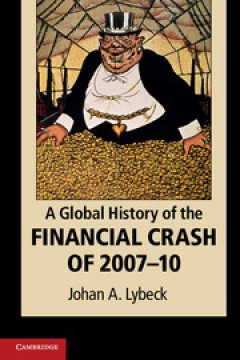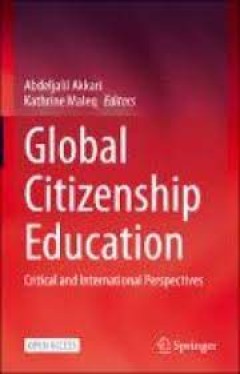Filter by

A Global History of the Financial Crash of 2007–10
We have just experienced the worst financial crash the world has seen since the Great Depression of the 1930s. While real economies in general did not crash as they did in the 1930s, the financial parts of the economy certainly did, or, at least, came very close to doing so. Hundreds of banks in the United States and Europe have been closed by their supervisory authorities, forcibly merged with…
- Edition
- -
- ISBN/ISSN
- 9780511984495
- Collation
- -
- Series Title
- -
- Call Number
- -

The Roman Empire Roots of Imperialism
A millennium and a half after the end of the period of its unquestioned dominance, Rome remains a significant presence in western culture. This book explores what the empire meant to its subjects. The idea of Rome has long outlived the physical empire that gave it form, and now holds sway over vastly more people and a far greater geographical area than the Romans ever ruled. It continues to sha…
- Edition
- -
- ISBN/ISSN
- ;9781783715732
- Collation
- -
- Series Title
- -
- Call Number
- -

Lifestyle Politics and Radical Activism
This book is available as open access through the Bloomsbury Open Access programme and is available on www.bloomsburycollections.com. Attempts by people to enact their political beliefs in their daily lives have become commonplace in contemporary US culture, in spheres ranging from shopping habits to romantic attachments. This groundbreaking book examines how collective social movements have cu…
- Edition
- -
- ISBN/ISSN
- 9781441157430
- Collation
- -
- Series Title
- -
- Call Number
- -

Global Citizenship Education Critical and International Perspectives
This open access book takes a critical and international perspective to the mainstreaming of the Global Citizenship Concept and analyses the key issues regarding global citizenship education across the world. In that respect, it addresses a pressing need to provide further conceptual input and to open global citizenship agendas to diversity and indigeneity. Social and political changes brought …
- Edition
- -
- ISBN/ISSN
- -
- Collation
- -
- Series Title
- -
- Call Number
- -

Indigenous Education: Language, Culture and Identity
Indigenous Education is a compilation of conceptual chapters and national case studies that includes empirical research based on a series of data collection methods. The book provides up-to-date scholarly research on global trends on three issues of paramount importance with indigenous education—language, culture, and identity. It also offers a strategic comparative and international educatio…
- Edition
- 1
- ISBN/ISSN
- 978-94-017-9354-4
- Collation
- XXV, 467
- Series Title
- -
- Call Number
- 370 IND

Economic Analysis of International Law : Contributions to the XIIIth Travemü…
The topics covered in this volume range from classics of the on-going discussion on the economic analysis of international law – such as the issue of legitimacy of customary international law – to more recent topics such as internet privacy, private military contractors, the fight against piracy, the International Criminal Court and the highly topical issue of land grabbing.
- Edition
- -
- ISBN/ISSN
- 9783161518942
- Collation
- XIII, 337 halaman
- Series Title
- -
- Call Number
- 340 ECO

Eli Lilly and Beyond : The Role of International Intellectual Property Treati…
This book is the adapted version of the Master thesis written in the summer of 2016 for the completion of the LL. M. program at MIPLC. The thesis is the result of my lasting interest in public international law and intellectual property law. Since its completion in September, 2016, the work has undergone some changes, primarily due to the developments in the case law it touches upon.
- Edition
- 1
- ISBN/ISSN
- 9783845293110
- Collation
- -
- Series Title
- -
- Call Number
- 340 STE e

Climate Change : International Law and Global Governance - Volume II : Policy…
It is with great pleasure and honour that I am writing a foreword for this eminent work, which seeks to promote the international rule of law, contribute to durable global peace, avoid conflict, lead to more effective protection of human rights, as well as sustain economic progress and development. The two volumes ofClimate Change: International Law and Global Governancedescribe important to…
- Edition
- 1
- ISBN/ISSN
- 9783845242774
- Collation
- -
- Series Title
- -
- Call Number
- 340 RUP c

Environmental law and policy in Cameroon : Towards making Africa the tree of …
Kamerun - die am Golf von Guinea gelegene ehemals deutsche Kolonie - ist ein geostrategisch relevantes, zentralafrikanisches Land reich an natürlichen Ressourcen. Das kamerunische Recht ist ein Faszinosum aus unterschiedlichen Rechtsquellen. Die Einflüsse aus dem englischen und französischen Recht, gepaart mit den Gewohnheitsrechten der zahlreichen ethnischen Bevölkerungsgruppen, sind auch …
- Edition
- 1
- ISBN/ISSN
- 9783845294360
- Collation
- 961 halaman
- Series Title
- -
- Call Number
- 340 RUP e

Deceptive Conducts before the Patent Office : Challenges for Patent Law and C…
In a recent patent infringement case between Servier and Apotex, courts in the UK were asked to look into the validity of a pharmaceutical patent that claimed a particular crystalline form of a compound called perindopril. Perindopril is a pharmaceutical compound essentially used to treat hypertension. Its preparation and use had been disclosed in a prior patent. The patent in the referred …
- Edition
- -
- ISBN/ISSN
- 9783748902577
- Collation
- -
- Series Title
- -
- Call Number
- 340 HOS d
 Computer Science, Information & General Works
Computer Science, Information & General Works  Philosophy & Psychology
Philosophy & Psychology  Religion
Religion  Social Sciences
Social Sciences  Language
Language  Pure Science
Pure Science  Applied Sciences
Applied Sciences  Art & Recreation
Art & Recreation  Literature
Literature  History & Geography
History & Geography